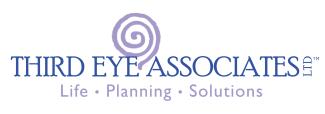Spring Cleaning Your Financial Life
April 16, 2014
By Beth Jones, RLP®, AIF®, CFT™
Spring is in the air. As the flowers come into bloom and the temperature ticks upward, you may experience a feeling of renewal. That’s often what spurs people to do their spring cleaning—a great idea. But while you’re at it, why not do some cleaning in your financial life as well? Even if you recently took a look at your finances as you prepared for tax season, there may be some items that could use attention. Following are some commonly neglected areas:
Emergency fund
If you don’t have one, starting an emergency fund should be on the top of your spring cleaning to-do list. Some say you should have three months of expenses readily available in case you and your family encounter the unexpected such as a job loss or large expense. It may take longer to find employment or to recover from a financial setback in the current economic environment, so you may want to increase your savings to six months of expenses.
I don’t like “formulas” and recommend you take a look at your life to determine what is the appropriate amount for your emergency fund. What are your fixed expenses, excluding discretionary spending? Are there any expenses that you pay once a year? Do you expect to replace any large ticket items in the next year? By planning ahead, you can be better off having an emergency fund and never needing it than to experience the reverse scenario. This really paid off in 2008 and 2009 when the economy took a dramatic nosedive.
Credit cards
Review the terms and conditions of your credit cards. Legislation that took effect in July 2010 caused credit card companies to alter their business practices. Across the board, interest rates have increased and some credit limits have dropped. In addition, some card companies have begun to charge additional transaction fees and implemented new service charges. These seemingly small changes can add up to real money, so you want to be aware of them.
You were likely notified of changes impacting your cards, but if you’re like many people, you probably didn’t pay attention to the notice you received. While card companies must disclose changes to their terms prior to enactment, it’s your responsibility to review the terms to stay informed. You may also find them on your bank website or obtain them by calling its customer service department.
You may discover that you’re not happy with the new terms of some cards. Your first instinct may be to terminate the agreement, but be careful about hastily closing accounts. This can lower your credit score, especially if you close older accounts with lengthy credit histories. Rather than close an account, use the card for small purchases and pay off the balance quickly. This will maintain your credit score and keep the card company from closing your account for nonuse. In some instances, you may be able to negotiate better terms. Check with your bank to find out.
Bank fees and services
Banks have new rules limiting what they can charge for certain services (e.g., overdraft protection and fees). As a result, many have instituted new charges or increased others to make up for potential profit loss. Your bank may have quietly announced some new or higher fees that you may not be aware of. Of course, it’s a good practice to read all bank notifications carefully, but you can catch up now by looking into whether your bank has instituted or increased monthly maintenance charges, check and deposit return charges or ATM/electronic fund transfer fees. Review every account, even if they all reside with the same bank. The terms can vary from institution to institution and from account to account within the same institution.
Credit report and score
A good credit rating can be critical. Businesses inspect your credit history when evaluating your applications for credit, insurance, employment, and even leases. With so much in the balance, it is important to check your credit report for accuracy at least annually and to watch for credit fraud.
Fortunately, it’s easy to check your report, as you are entitled to one free annual report from each of the three major credit reporting agencies— Equifax, TransUnion, and Experian. You may consider using a website such as www.annualcreditreport.com to gather this information, but be sure you choose a site that doesn’t charge you for the report itself. You may also use a credit monitoring service or site, but be wary of the terms of service. Read the fine print!
Investments and Insurance
Take the pulse of your financial accounts regularly. This includes reviewing your investments, insurance policies, annuity contracts, retirement plans, and educational savings accounts. Are you on track to achieve your goals? Do you need to make adjustments? Discuss your investment allocation, risk tolerance, and objectives with your trusted professional advisor. If you don’t have one, make this the year you get a trusted advisor.
Review your beneficiaries once a year to be sure they are up to date. Financial life spring cleaning may take some effort, but checking these off your list will free you up to enjoy the season. You’ll feel relieved, knowing that you’ve taken important steps to secure your economic future.
Third Eye Associates, Ltd disclaimer
This article is provided for general informational purposes only and should not be construed as investment advice. Always consult a qualified Financial Consultant or Planner who can guide you in creating a globally diversified portfolio that provides growth and income with an eye on managing volatility.
Beth Jones, RLP®, AIF®, CFT™ is a Certified Financial Transitionist™, Registered Life Planner, and Financial Consultant with Third Eye Associates, Ltd, a fee-only Registered Investment Adviser located at 38 Spring Lake Road in Red Hook, NY. She can be reached at 845-752-2216 or www.thirdeyeassociates.com.

